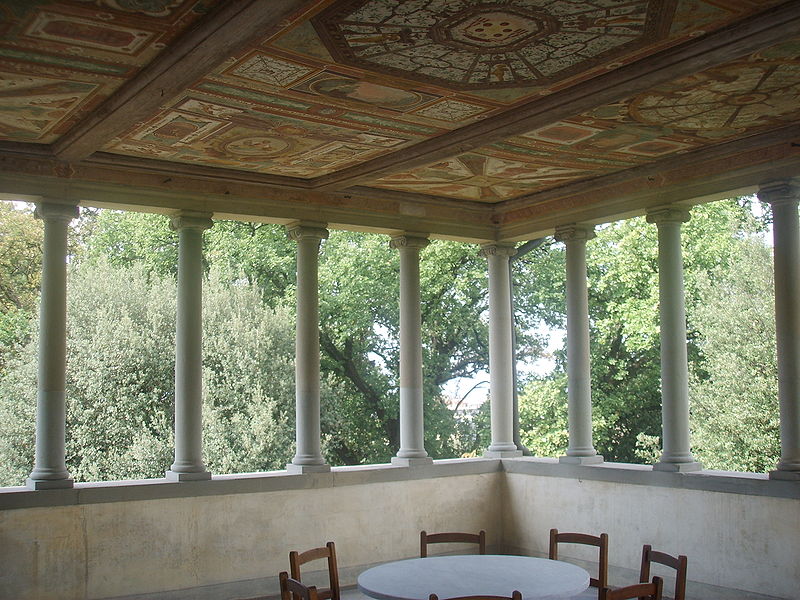Immortal Meals #10: Love Feast in Fifteenth-century Florence October 20, 2012
Author: Beach Combing | in : Ancient, Medieval , trackbackIf you could visit any dinner in history, where the mighty of the earth were gathered, what would you choose? One of Nero’s shindigs in ancient Rome, Giordano Bruno’s Ash Wednesday Supper, the Banquet of the Chestnuts to watch the Borgias having sex, Churchill and Stalin‘s snarl show at Tehran, Mannerheim blowing cigar smoke into Hitler’s face, Buckland gobbling down a French king’s heart, or Britain’s Champagne Toast at the end of the Cold War? Here, in any case, is another repast to add to the Immortal Meals series. We are in fifteenth-century Florence at a villa on the outskirts of the city.
In the late fifteenth century, Marsilio Ficino, Lorenzo the Magnificent’s philosophy teacher, organised at Careggi (today a grotty run down part of Florence) a series of philosophical meals. What is a philosophical meal? Wine and, of course, music were on offer, even to excess. But the food was frugal and over-read late medieval Florentines would sit in a circle and, in a ritual from another age, they would play act, reading from Plato’s writings, taking on the role of different characters in his dialogues.
The most famous of these philosophical meals took place 7 November (1474), the date that the Florentine circle believed was both the birth and death date of the immortal Plato. The host of this particular banquet was Francesco Bandini, later Medici ambassador to Hungary. And his guests included Antonio degli Agli, bishop of Fiesole, one of the greatest theologians of his day. There was also Diotifeci d’Agnolo, Ficino’s father, a noted doctor; Christoforo Landino, philosopher, early art historian, poet and teacher of Lorenzo; Giovanni Cavalcanti, friend and possibly lover of Ficino; and two sons of Carlo Marsuppini (obit 1453), one time chancellor of the Florentine Republic.
And the meal itself? The men talked of God and love, remaking the feast at Agathon that is at the centre of Plato’s Symposium. To what extent did Ficino fictionalise and to what extent was he immortalising his dear friends in his writings: an account appears in the Commentarium in Convivium Platonis? We will never know and, at this remove, it is impossible to say whether the text is Ficinian because MF had put words into the guests’ mouths, or because they had all learnt to speak as he did. The Commentarium‘s conclusions are, in any case, remarkable. God is in everything and by seeing His beauty in our senses we are drawn towards God. By loving the other and desiring union we want nothing less than to become God. If a midwife out in the hills of Chianti had muttered this in a public place she would have been rewarded with the Inquisition and a public trip to a bonfire.
It is a treat that ideas like this could have survived over a thousand years of State Christianity or, even that they were conjured back out of old books by medieval highlanders looking down on the Greek and Roman lowlands. And when we read Ficino today or walk in the overly symmetrical gardens of the villas at Careggi we brush up against that tipsy evening where Cavalcanti played Fedro and some of the greatest minds of their day and of their world, drank new wine in the twilight of the Italian renaissance.



